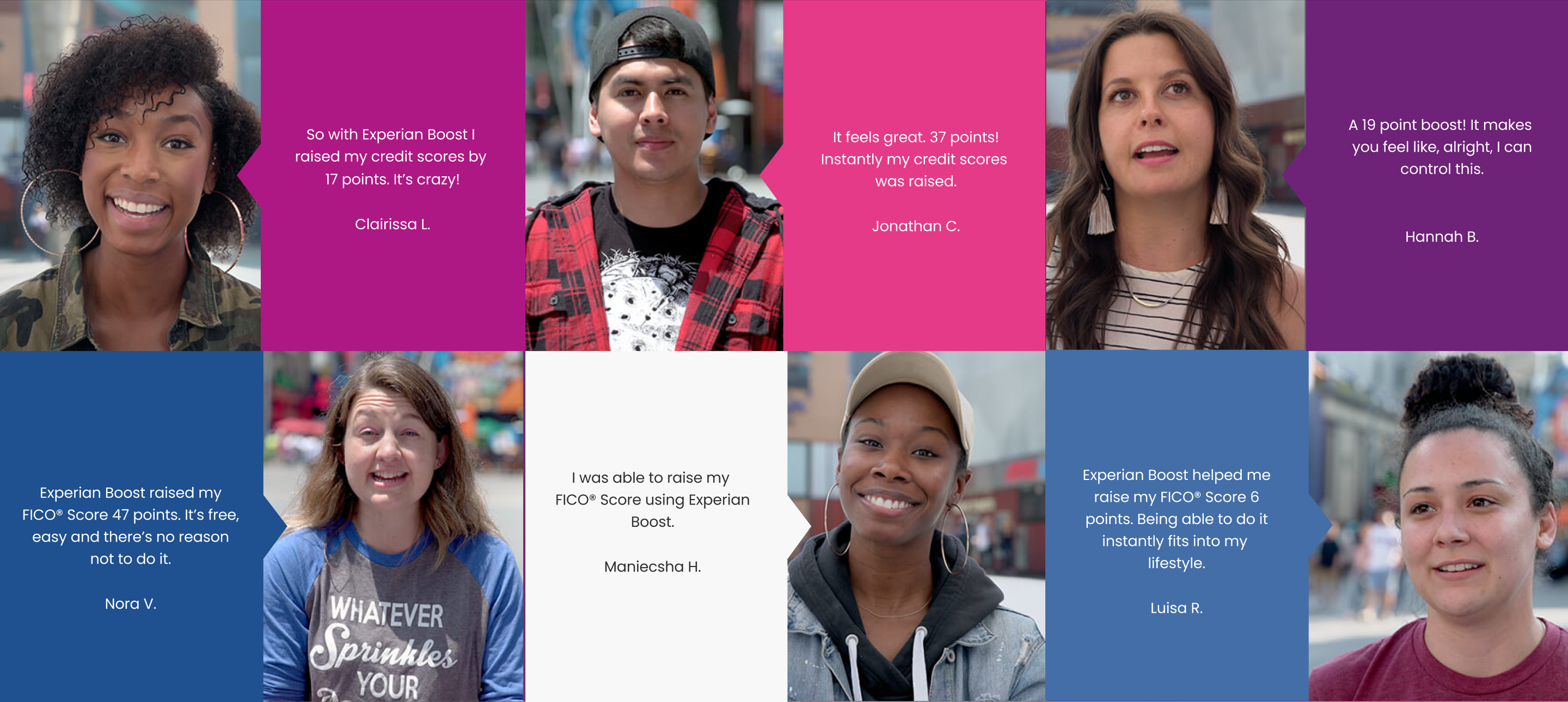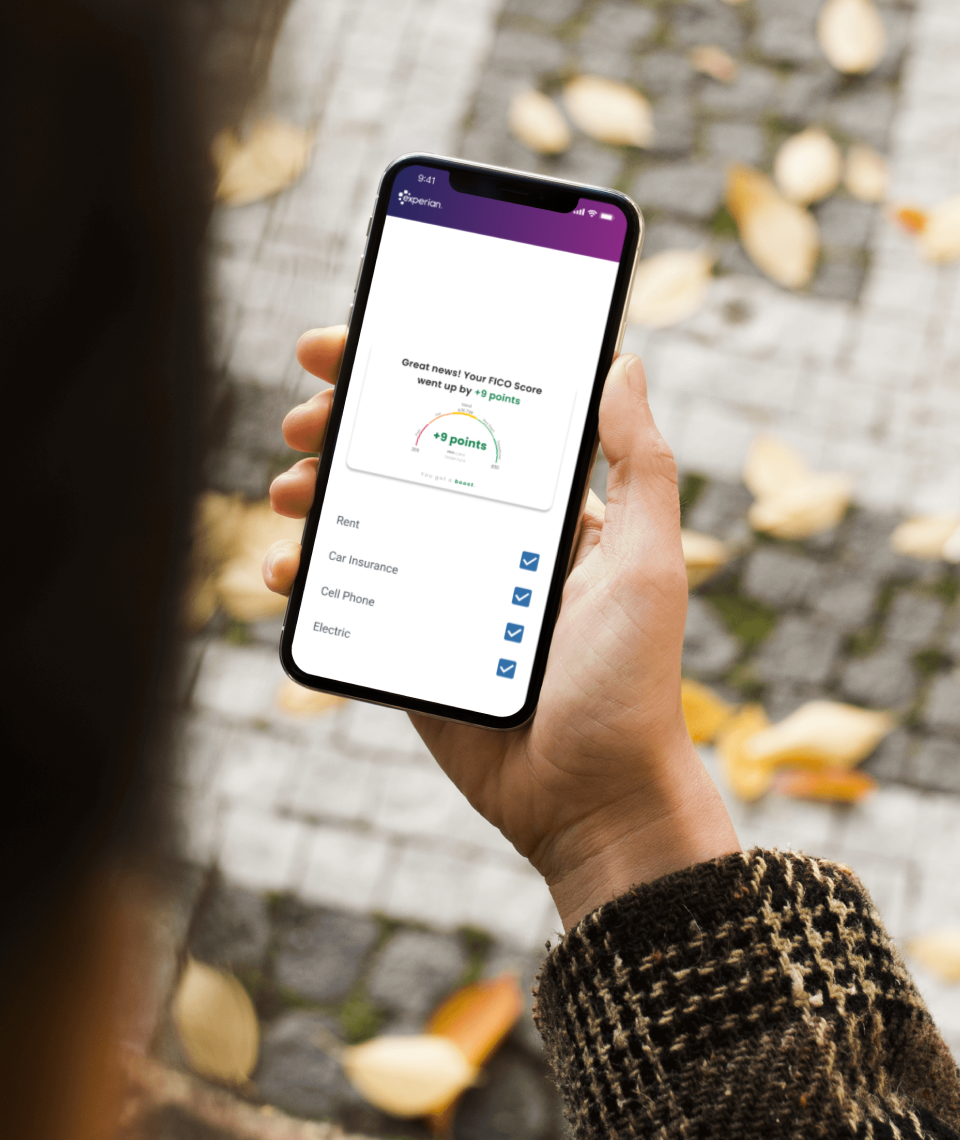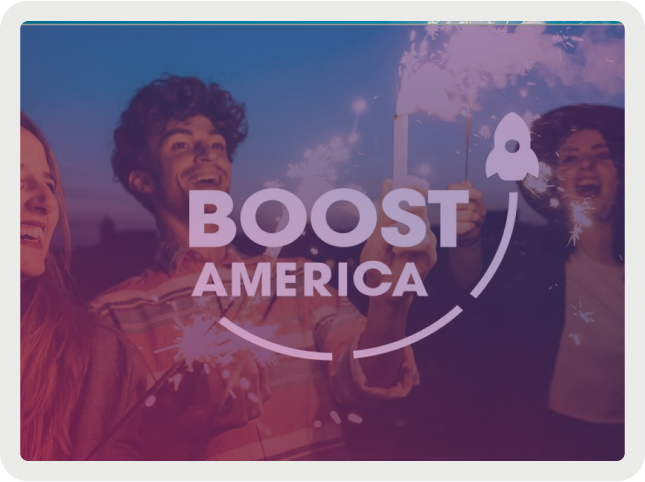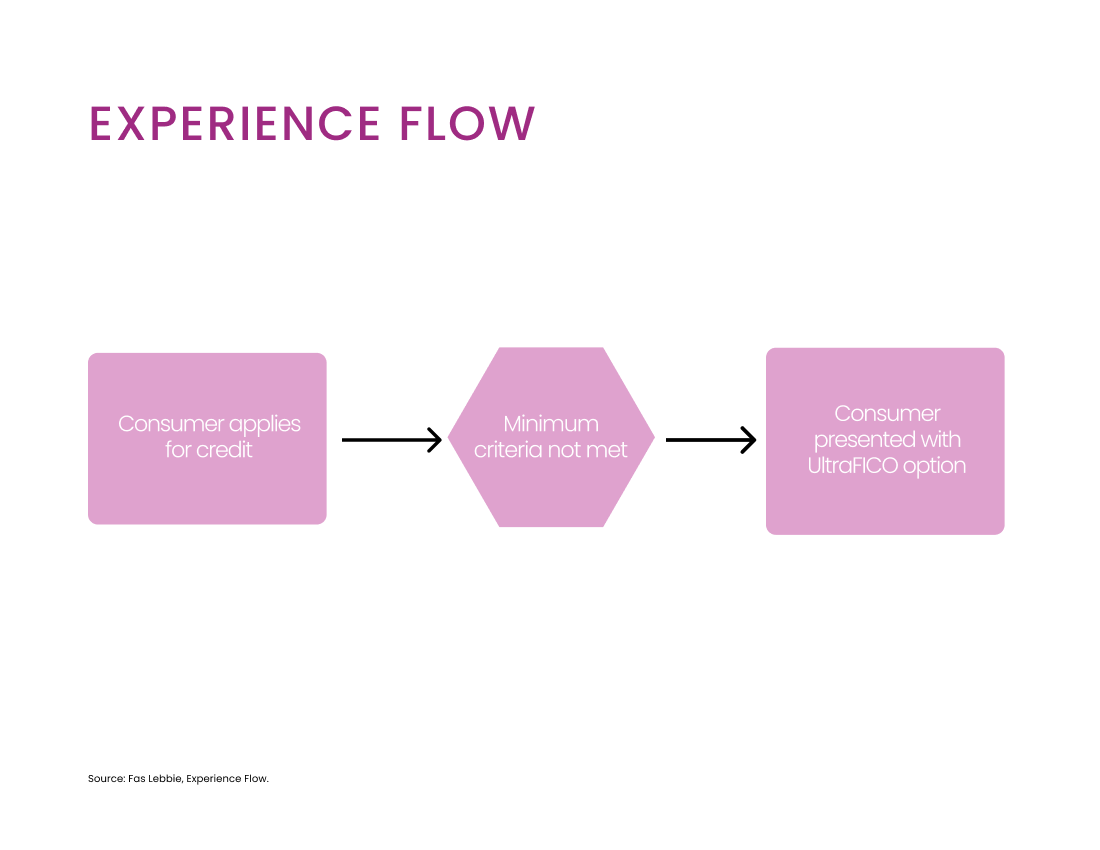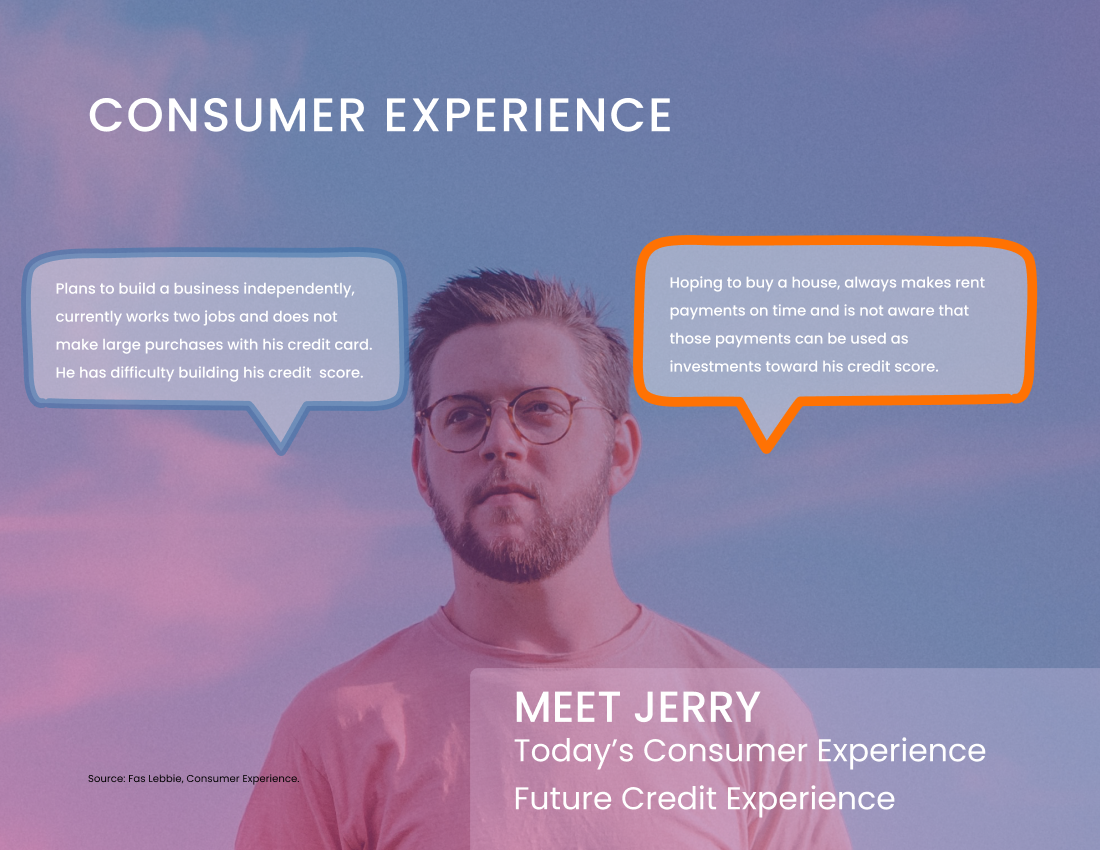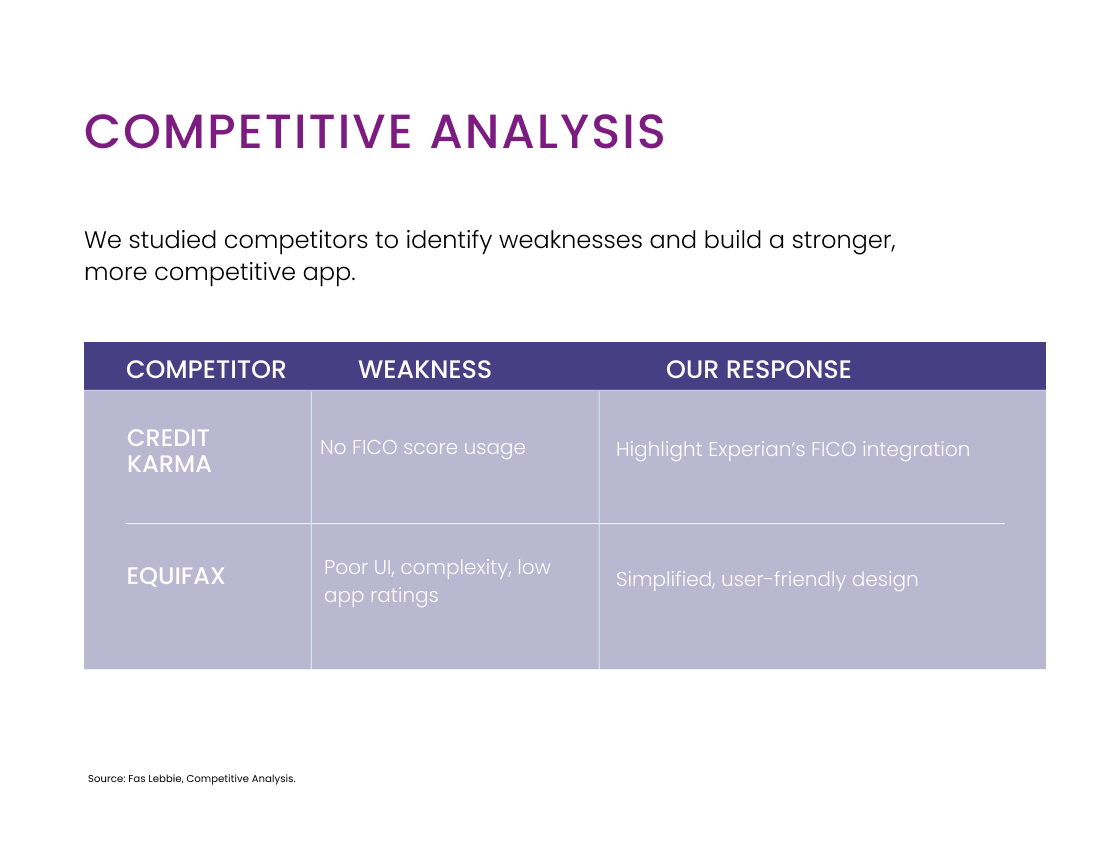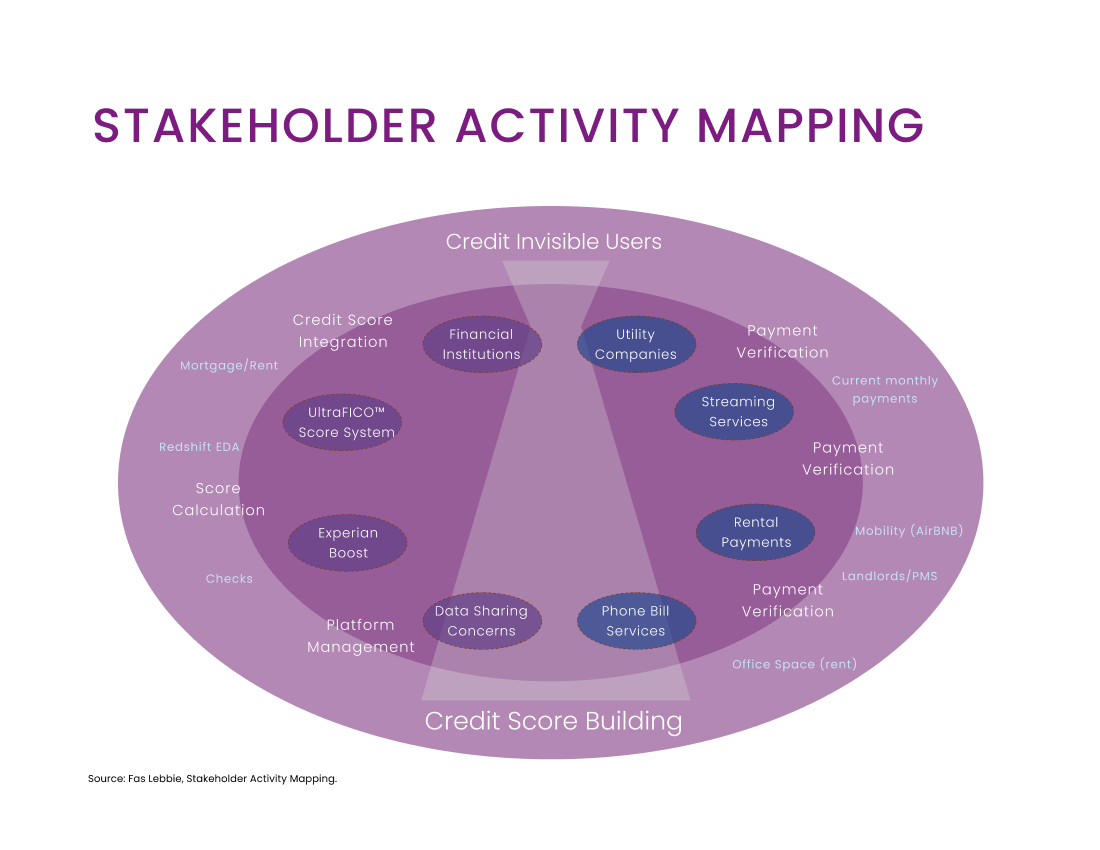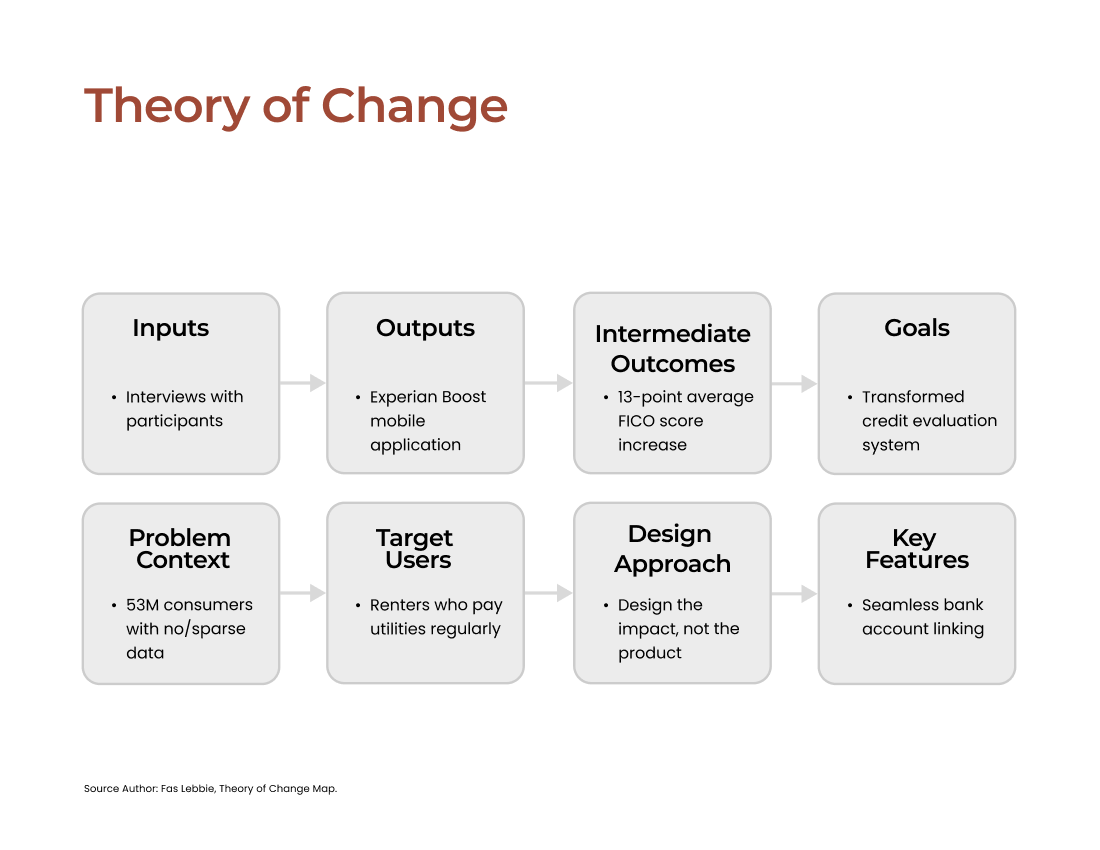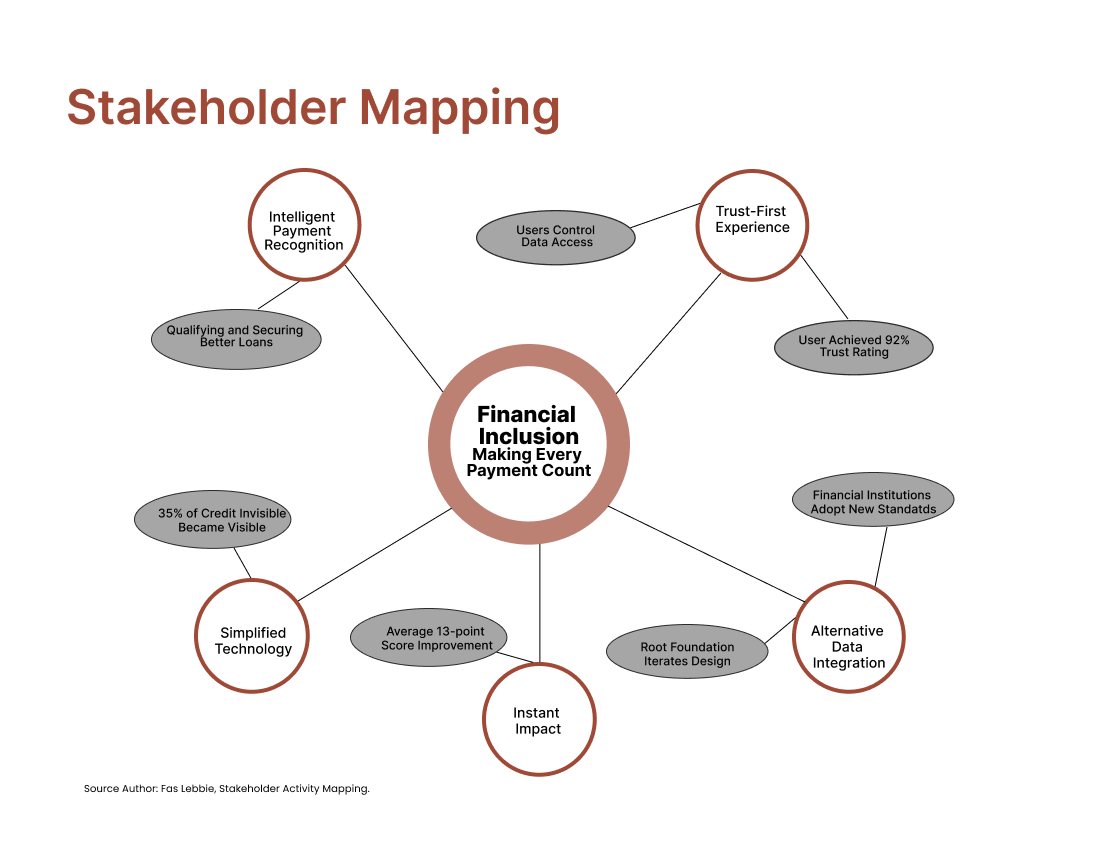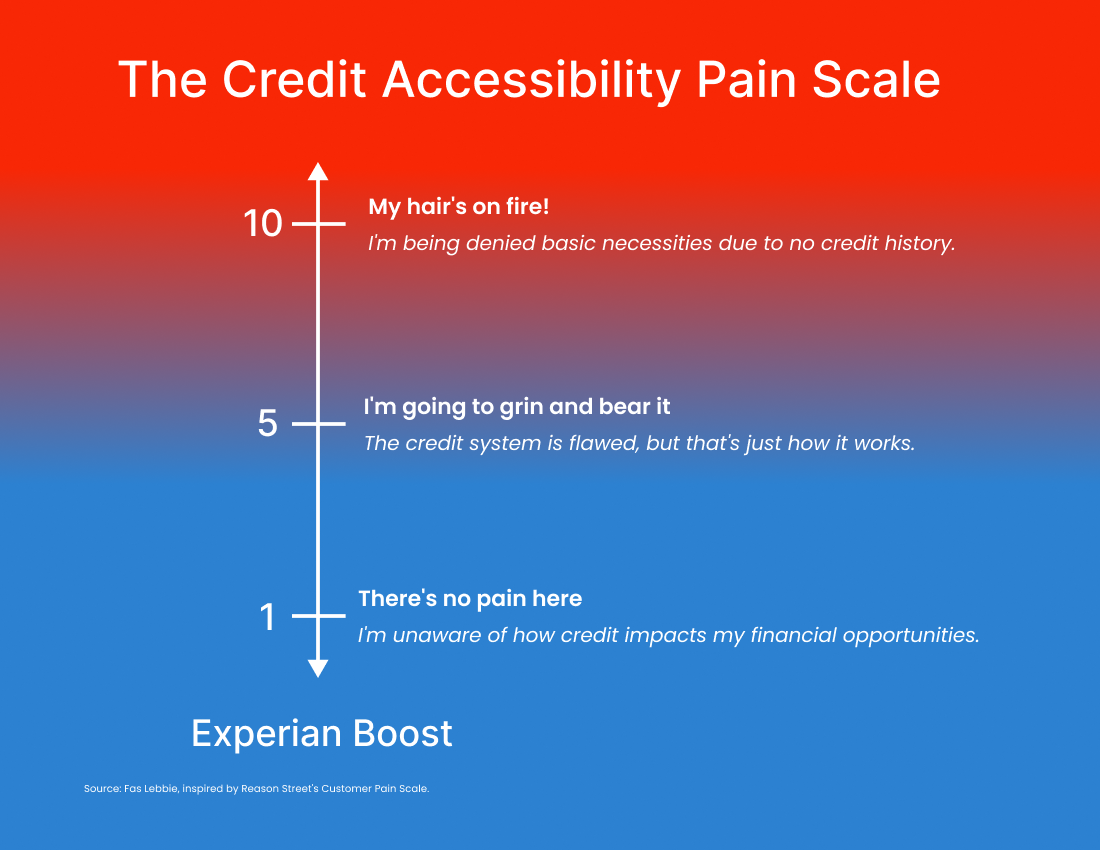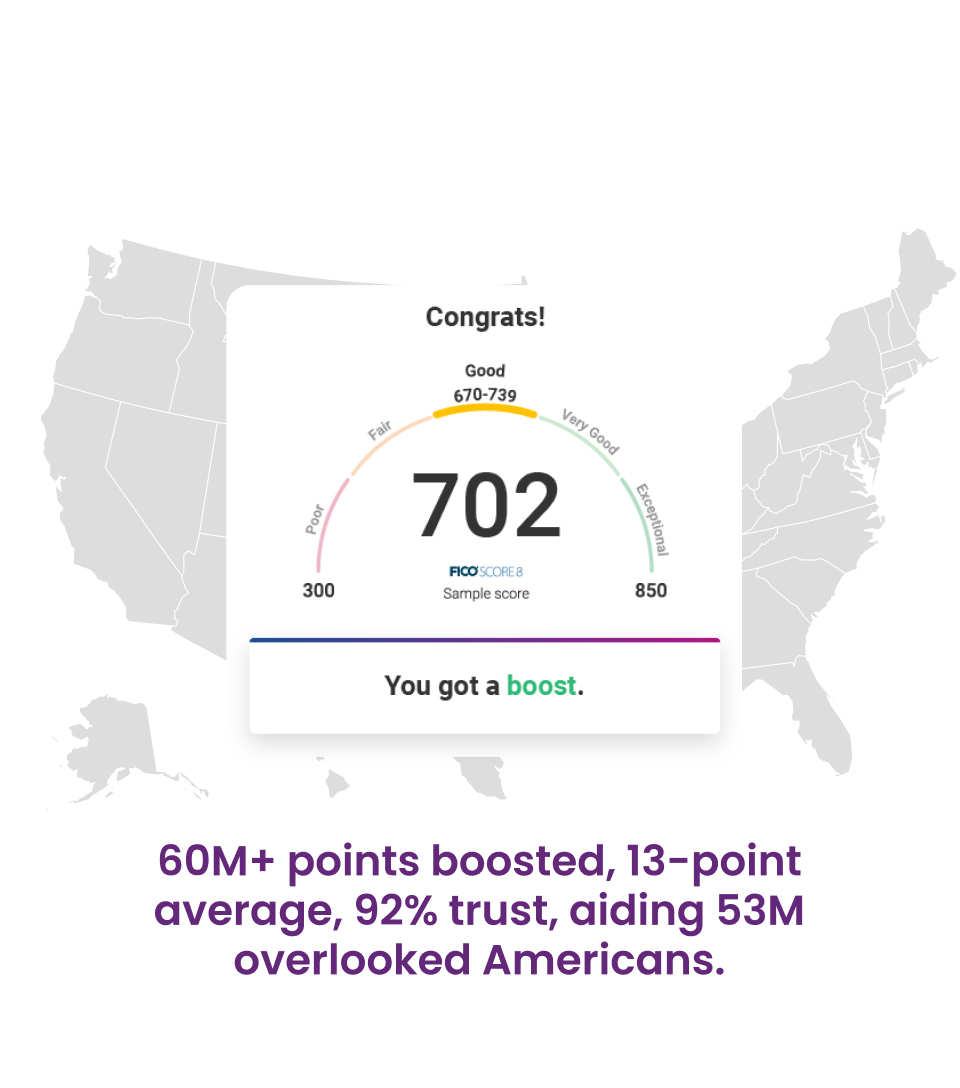This research identified opportunities to bridge the gap between reliable bill payment data and creditworthiness indicators. Participants managed utility payments and financial commitments but received no acknowledgment of their financial behavior. Our research found that 90% of participants had a low rate of large purchases that build credit but a high rate of consistent utility and rent payments. Annually, over $50 billion in utility payments goes unacknowledged in the US, missing the chance to link these payments to credit reliability. Most participants maintain a “thin file” lacking large credit transactions, yet their bill payments reflect actual creditworthiness. Additionally, 35% of Americans’ monthly rent and utility payments, totaling over $50 billion annually, do not contribute to their credit scores. Many renters do not pay utilities directly, making rental payments an overlooked avenue for credit improvement.
These insights present design interventions in traditional credit scoring methods, particularly for those below the Fico 680 credit score-seeking credit score empowerment. We propose an application to empower users to link accounts and securely streamline rent and utility transaction history. This platform would facilitate a simplified onboarding process, allowing users to enhance their credit scores through demonstrated financial responsibility. The MVP was built based on three use cases that our design solution must have.
- Experience design must have the best practices for usability and accessibility in the financial regulatory fintech space to ensure individuals can quickly link financial data.
- The design must integrate Utility and Rent Data to capture payment histories and translate regular payment behavior into credit-boosting opportunities.
- Experience design augments security measures that ensure users’ data security and ease of use, paramount for fostering trust and encouraging adoption.
